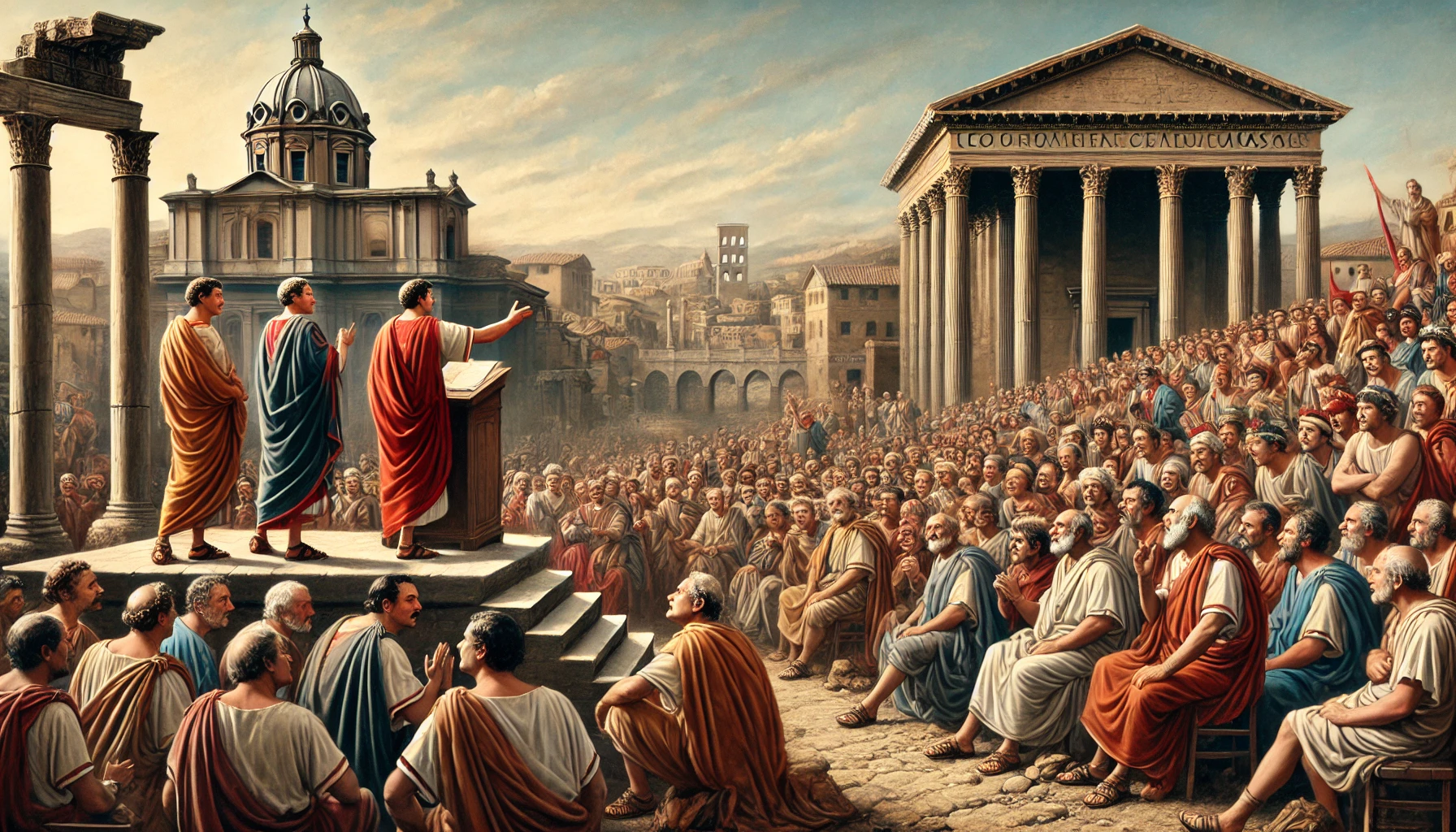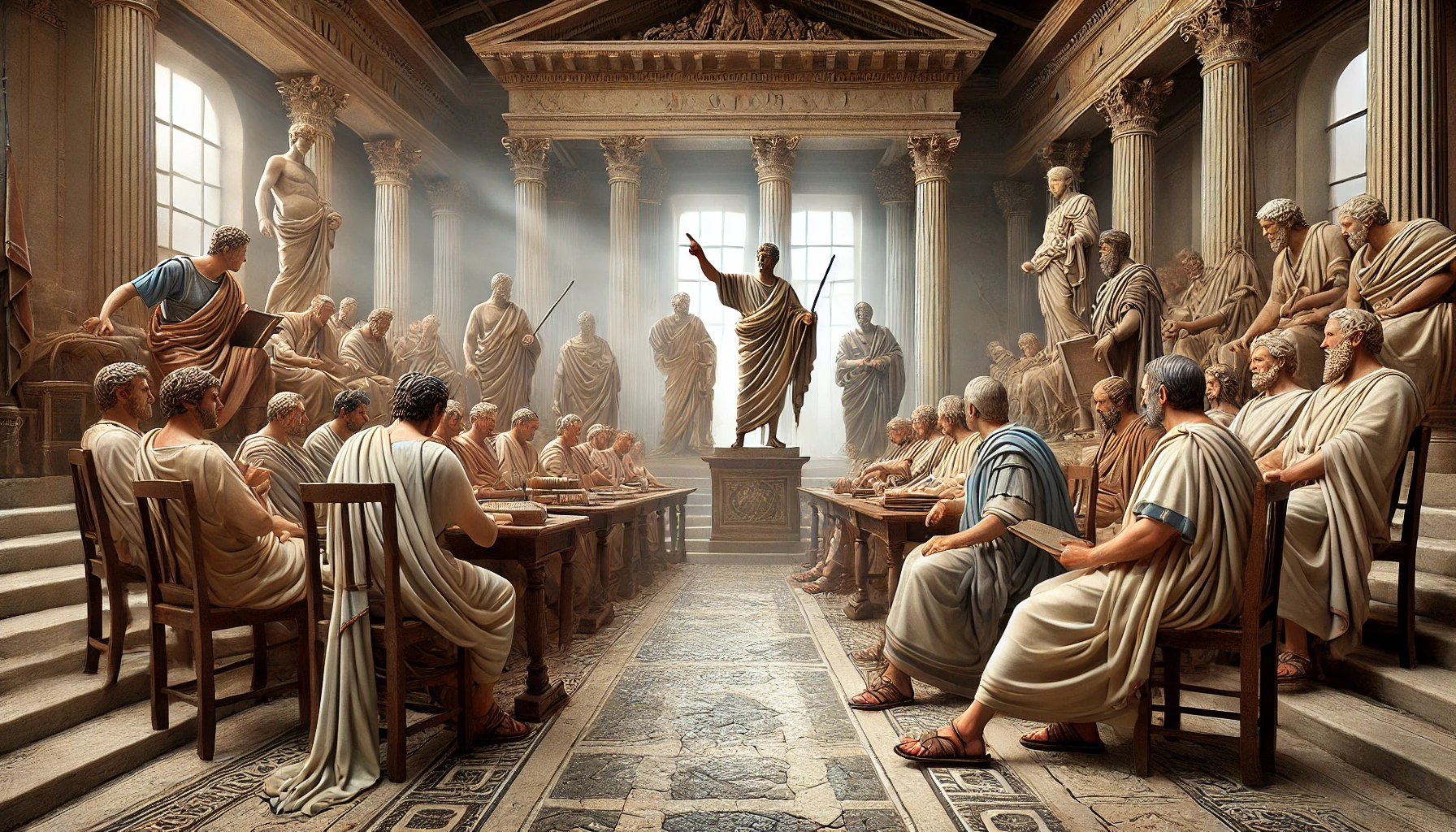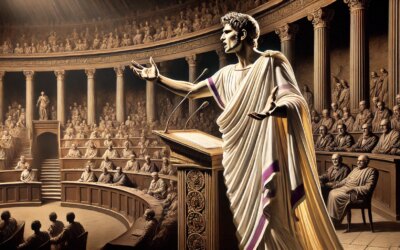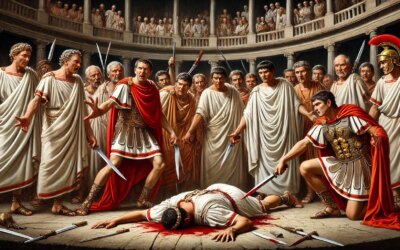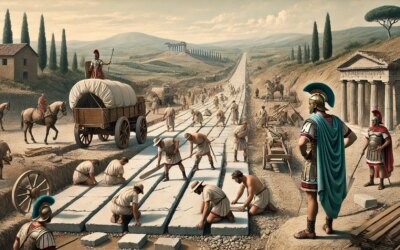The Roman Republic at a Crossroads
By the late 2nd century BCE, Rome had become the dominant power of the Mediterranean, but its rapid expansion brought deep economic and social divisions. Wealthy elites controlled vast estates, while many common citizens, especially soldiers returning from war, found themselves landless and impoverished. In this turbulent period, two brothers—Tiberius and Gaius Gracchus—rose to prominence as champions of the people, advocating for land redistribution and political reform.
Tiberius Gracchus: The First Challenge to the Senate
In 133 BCE, Tiberius Gracchus, a tribune of the plebs, proposed the Lex Agraria, a law aimed at redistributing public land to landless citizens. This reform threatened the power of the senatorial elite, who had amassed vast tracts of land illegally. Tiberius bypassed the Senate and took his proposal directly to the Plebeian Assembly, a bold move that enraged the ruling class.
His actions set off a political firestorm. Accused of seeking a monarchy, Tiberius was violently murdered by a group of senators and their followers—one of the first instances of political violence in Rome’s history.
Gaius Gracchus: Expanding the Reforms
A decade later, in 123 BCE, Gaius Gracchus continued his brother’s mission, introducing broader reforms, including grain subsidies, military service laws, and new colonies for the poor. Unlike Tiberius, he built a coalition that included equestrians, who sought to counterbalance the Senate’s influence.
Despite his initial success, Gaius also faced fierce opposition. In 121 BCE, after losing political support, the Senate declared him an enemy of the state. A violent crackdown followed, and Gaius, facing inevitable death, took his own life to avoid capture.
The Aftermath and Lasting Impact
The deaths of the Gracchi brothers marked a turning point in Roman politics. Their struggle exposed deep class divisions and set a precedent for violence as a political tool. Though their reforms were short-lived, their legacy lived on, influencing later populist leaders like Marius, Sulla, and Julius Caesar.
The Beginning of Rome’s Political Decline
What started as a movement for economic justice escalated into a cycle of political violence that would eventually contribute to the fall of the Republic. The Gracchi’s fight for reform highlighted the Republic’s inability to adapt to its expanding empire, foreshadowing the rise of autocratic rule.

